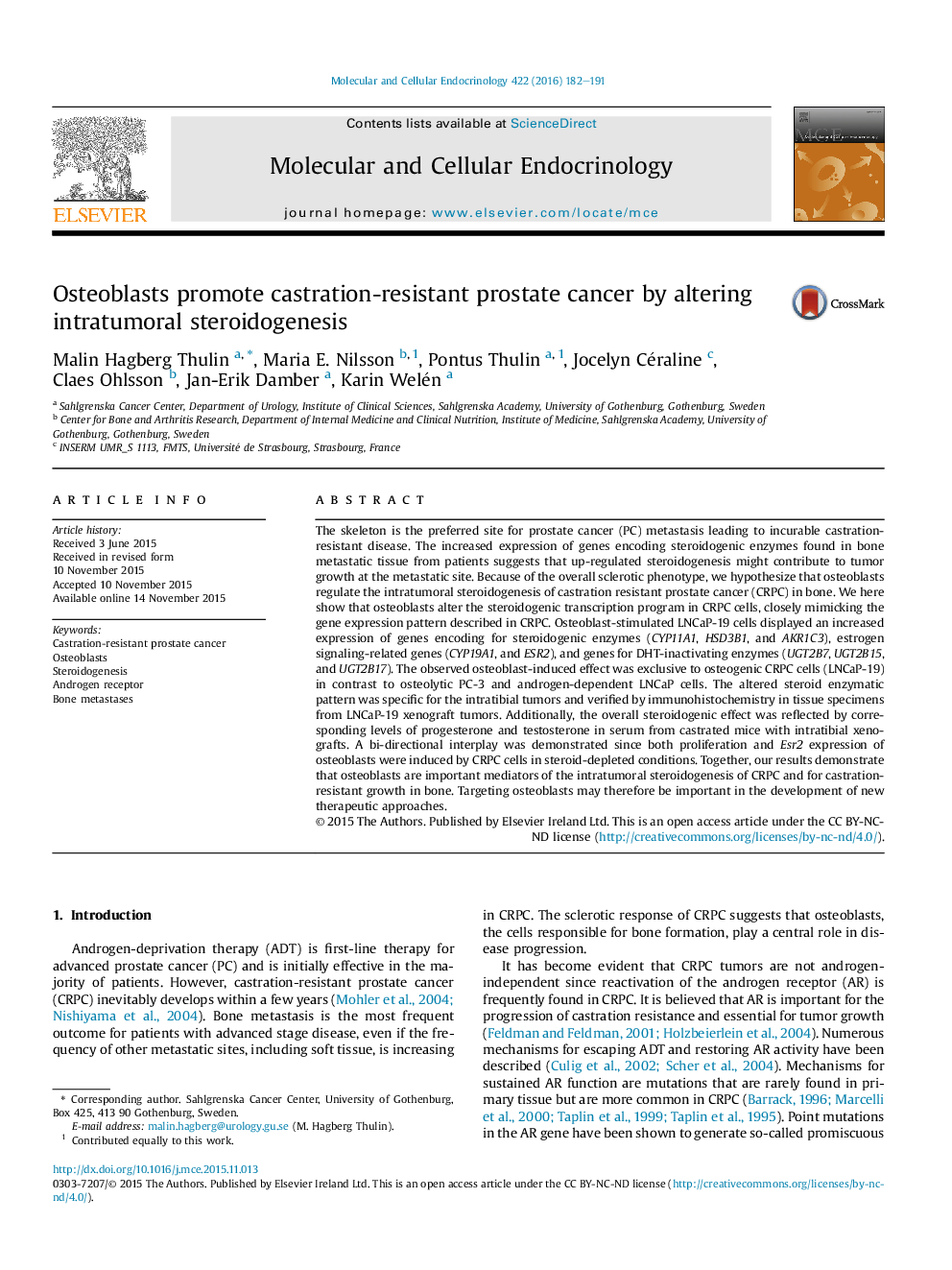| Article ID | Journal | Published Year | Pages | File Type |
|---|---|---|---|---|
| 8476830 | Molecular and Cellular Endocrinology | 2016 | 10 Pages |
Abstract
The skeleton is the preferred site for prostate cancer (PC) metastasis leading to incurable castration-resistant disease. The increased expression of genes encoding steroidogenic enzymes found in bone metastatic tissue from patients suggests that up-regulated steroidogenesis might contribute to tumor growth at the metastatic site. Because of the overall sclerotic phenotype, we hypothesize that osteoblasts regulate the intratumoral steroidogenesis of castration resistant prostate cancer (CRPC) in bone. We here show that osteoblasts alter the steroidogenic transcription program in CRPC cells, closely mimicking the gene expression pattern described in CRPC. Osteoblast-stimulated LNCaP-19 cells displayed an increased expression of genes encoding for steroidogenic enzymes (CYP11A1, HSD3B1, and AKR1C3), estrogen signaling-related genes (CYP19A1, and ESR2), and genes for DHT-inactivating enzymes (UGT2B7, UGT2B15, and UGT2B17). The observed osteoblast-induced effect was exclusive to osteogenic CRPC cells (LNCaP-19) in contrast to osteolytic PC-3 and androgen-dependent LNCaP cells. The altered steroid enzymatic pattern was specific for the intratibial tumors and verified by immunohistochemistry in tissue specimens from LNCaP-19 xenograft tumors. Additionally, the overall steroidogenic effect was reflected by corresponding levels of progesterone and testosterone in serum from castrated mice with intratibial xenografts. A bi-directional interplay was demonstrated since both proliferation and Esr2 expression of osteoblasts were induced by CRPC cells in steroid-depleted conditions. Together, our results demonstrate that osteoblasts are important mediators of the intratumoral steroidogenesis of CRPC and for castration-resistant growth in bone. Targeting osteoblasts may therefore be important in the development of new therapeutic approaches.
Keywords
Related Topics
Life Sciences
Biochemistry, Genetics and Molecular Biology
Cell Biology
Authors
Malin Hagberg Thulin, Maria E. Nilsson, Pontus Thulin, Jocelyn Céraline, Claes Ohlsson, Jan-Erik Damber, Karin Welén,
